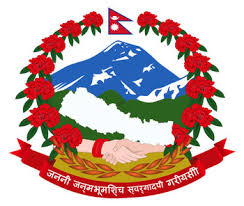Government embraces policy for modern technology-based farming in uncultivated land

Kathmandu / June 27: Minister for Land Management, Cooperatives and Poverty Alleviation, Ranjita Shrestha Chaudhary, has said the government has pursued for a policy of a modern technology-based farming in the land left uncultivated.
In her response to queries in a meeting of the House of Representatives (HoR) today regarding the budget allocations under the Ministry for the fiscal year 2023-24, the Minister assured of ending the practice of keeping fertile land unused and promoting the domestic production through a modern technology-based farming in such area.
“We hope this policy will contribute to reduce food imports and thus the country’s trade deficit,” she said.
She informed the session that the National Land Commission had been formed to find a sustainable solution to the issues of landless Dalits, squatters and the dwellers in the unsystematic settlement. “The goal is being pursued in coordination of three-level governments.”
To date, the Commission has signed an agreement with 697 local levels, out of 753, seeking their coordination in its mission and 2,853 land registration certificates have been distributed, according to her.
As she said, the government plans to also seek the cooperation of local levels to address the issues of freed kamaiya and Kamlahari, the former bonded workers.
She said some cooperatives indulged in misappropriation of the savings by their members going against the spirit and objectives of the cooperatives, leading to the building of a negative perception toward the entire cooperative sector. She apprised the session that a task force is working for the management of crisis-hit cooperatives. So far, the problems of two, out of 12 identified as the crisis-ridden, have been resolved.
She said preparation to amend Land Use Regulations for the sustainable development and appropriate management of land, adding activities including construction of infrastructures required to merge Survey and Customs Offices have already been forwarded.
Minister Shrestha mentioned that Nepal has already made it clear that its border is up to LImpiyadhura and activities would be forwarded through foreign secretary-level committee of both countries taking technical support on the border issue of the area.
She further said that 615,161 poor identity cards have already been distributed by identifying poor households in 49 districts so far. Programmes would be forwarded in order to provide poor identity cards by identifying all poor households of the remaining districts within fiscal year 2080/81 BS, mentioned the Minister.
“The Land-Use Policy is in the phase of implementation. A total of 170 local levels have prepared and implemented Land use classification and plan”, she added.
Minister Shrestha mentioned that ‘Bisheshwor with poor people’ programme would be implemented in all 77 districts through local levels as per the need.RSS
